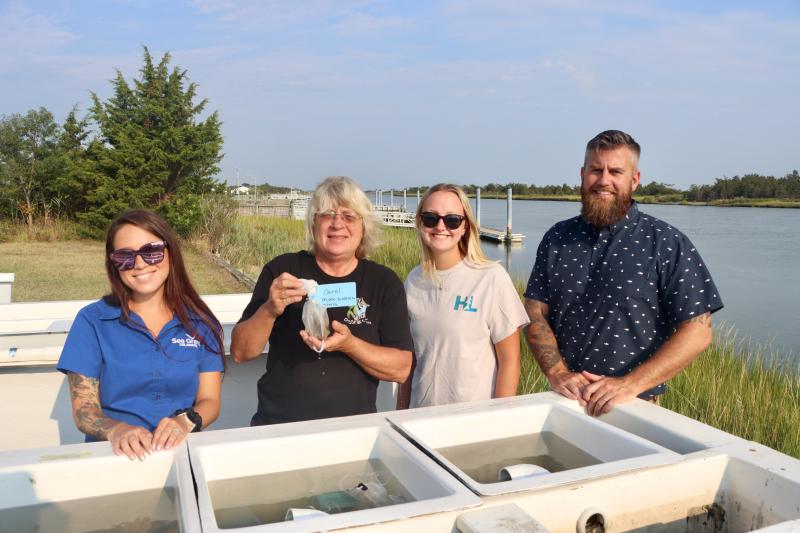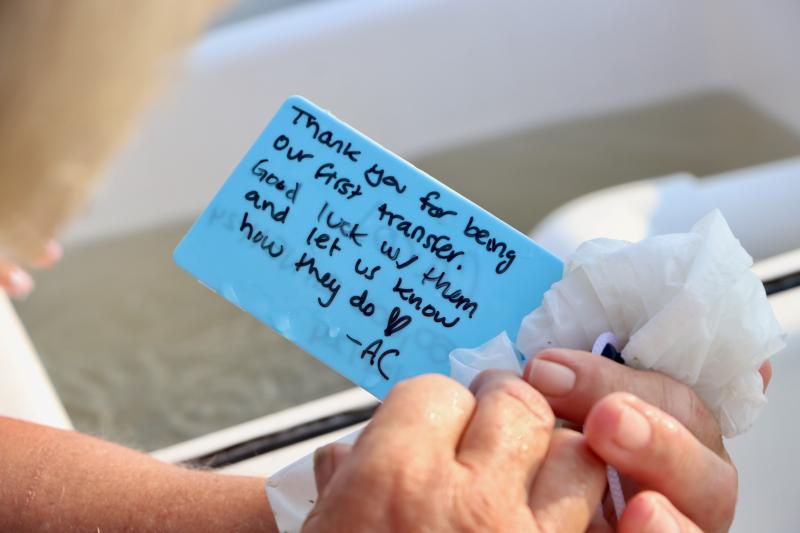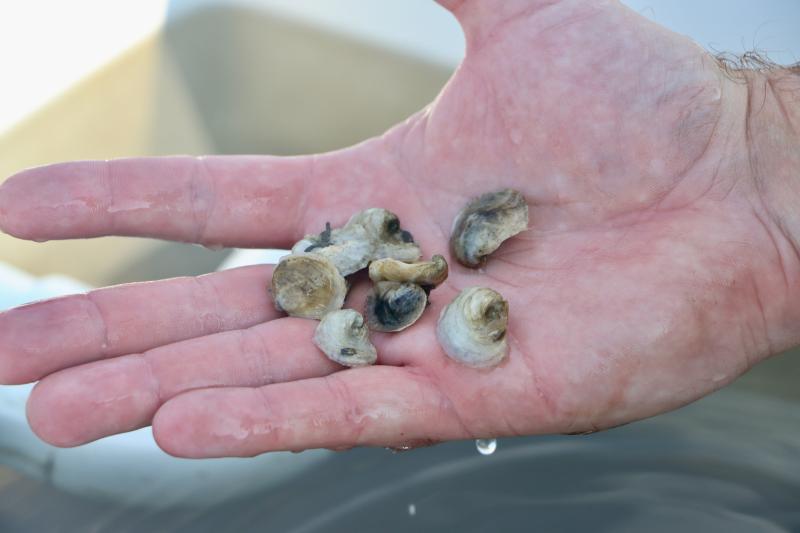Big day for tiny oysters at UD’s Lewes campus

Carol Friend picked up 50,000 oysters in Lewes, but she did not need a bigger boat.
The tiny seed oysters fit in a small bag, right in her hand.
Friend, who owns the Salty Witch Oyster Company in Lewes, came to the University of Delaware’s hatchery on Pilottown Road Aug. 28 for the first handover of seed oysters destined for the Inland Bays.
“This program is awesome,” Friend said. “This gives us first dibs as opposed to an outsider coming to get the seed.”
Friend is not alone. She is one of nine commercial oyster farmers in the Inland Bays. Some of the others will also pick up seed oysters from the university hatchery.
Friend said she will first place the oysters in floating cages or bags, and let them grow a little before placing them in a cage on the bottom.
Ed Hale, assistant professor at the University of Delaware’s School of Marine Science & Policy, said the oysters will have a ways to go before they end up on a plate.
“We have found that oysters can grow out to sizes about 3 inches in about nine months in the Inland Bays. Typically, we say it takes about two years for a diploid oyster,” Hale said.
Hale started the pilot-scale hatchery two years ago.
This is the first season they are sending out individual oysters into the bays, giving away everything they grow.
He said oysters improve water quality, and the habitat for fish and other bay life.
Hale said there are enormous economic benefits for the burgeoning local farm-raised oyster business.
“We know consumers prefer locally harvested products, sort of the dock-to-table concept. Somebody can market a Delaware-sourced oyster, which is a big step for us,” Hale said.
Friend, who grew up around the water in Lewes, sells some of her oyster crop to retail sellers like the Rehoboth Bay Oyster Company. She also sells to farmers markets and holds private shucking events.
She said the next thing on her plate is getting the state to approve farm-raised clams in the Inland Bays.
















































